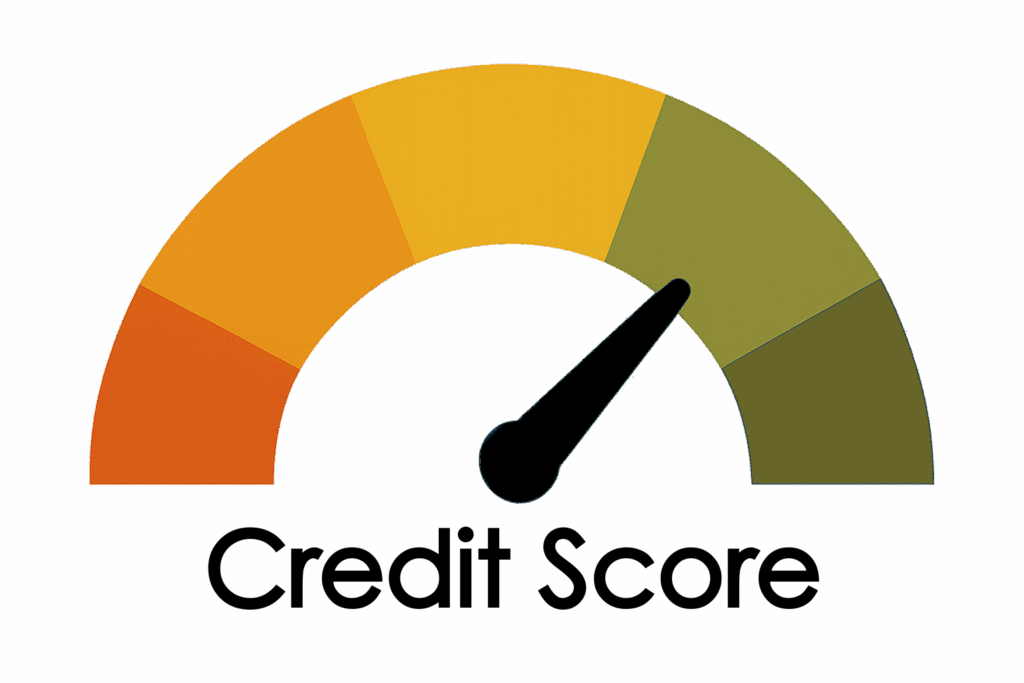Follow these steps to address errors effectively:
Securing a mortgage can feel as challenging as climbing Everest, especially with rising interest rates and the cost of living stretching your budget. However, there are strategies to improve your chances. This guide shares top tips to help you increase your likelihood of being approved for a more affordable mortgage deal.

Each lender has its own criteria for deciding if you’re a suitable borrower. If you closely align with their requirements, approval might be straightforward. However, rejection becomes more likely if you fall short of their standards.
For those who don’t fit perfectly but aren’t completely unsuitable either, the decision often falls into a grey area, where several factors come into play:
Meeting a lender’s criteria improves your chances of approval, but it doesn’t guarantee success. Each lender’s decision ultimately depends on a combination of these factors.
Before applying for a mortgage, it’s essential to demonstrate financial responsibility to potential lenders. Lenders assess this by reviewing your credit report(s) to check your repayment history and overall creditworthiness.
Your credit report contains details of any accounts you’ve held over the past six years, such as:
In the UK, the three main credit reference agencies—Experian, Equifax, and TransUnion—compile their own credit report about you. Since you won’t know which agency your lender will use, checking all three reports is a good idea.
The good news is that you can access your credit reports for free.
For an extra advantage, consider joining MSE’s Credit Club. This free service provides access to your TransUnion credit report and includes a unique Credit Eligibility Rating. It also estimates how much a lender might consider lending you based on affordability criteria.
Taking these steps ensures your credit information is accurate and gives you a clear picture of how mortgage lenders might view your application.

A poor credit history doesn’t necessarily mean you can’t get a mortgage, but it may make the process more challenging and limit your options. To improve your chances of approval, take some time before applying to work on strengthening your credit report.
For guidance on improving your credit profile, visit our Credit Scores Guide.
Using gambling websites won’t appear explicitly on your credit report. However, frequent gambling transactions on your bank statements could raise questions during mortgage approval, as lenders may assess your financial habits.
Your credit score is crucial in determining your financial options. If your credit report contains incorrect information, you have the right to have it corrected—or at least to provide your perspective.
Follow these steps to address errors effectively:
Review your credit file with all three main agencies: TransUnion, Equifax, and Experian. Errors on one report might not appear on the others, but resolving an issue with one agency should result in corrections being shared with the others. Proactively contact each agency to ensure your file is accurate everywhere.
Reach out to the lender associated with the error. Most lenders have processes in place to handle disputes. Present evidence supporting your claim and request that the error be removed.
If the error is a default and you’re willing to settle the debt (partially or fully), you might negotiate for the default to be removed as a condition of the settlement. This is often an option in cases of disputed defaults.
If the lender does not resolve the issue, contact the three credit reference agencies directly. You can request a “notice of correction” to be added to your file.
This is your chance to explain the situation briefly and clearly. For instance: “This was a joint account, and the debt arose after I separated from my ex-partner.” While this may slow down future credit applications due to manual reviews, it’s worthwhile if the error involves a significant default that could impact your creditworthiness.
If the lender and agencies fail to address the problem, you can file a complaint with the Financial Ombudsman Service—a free, independent body for resolving disputes with financial companies.
The Ombudsman can investigate and, if they find it in your favour, correct errors and remove unfair defaults.
Pro Tip: Regularly check your credit report to catch errors early and keep your financial health intact.
Effectively managing your available credit is crucial for maintaining financial health and appealing to lenders. Available credit refers to the difference between the total credit limits on your credit cards and overdrafts and the amount you borrowed.
It’s important to strike the right balance. Too much-unused credit can signal a risk to lenders, as you could quickly take on more debt. On the other hand, consistently approaching your credit limits can suggest you’re financially stretched.
Credit agency Experian advises that debts should ideally make up less than 50% of your available credit, and staying closer to 25% is even better. For example, if your combined credit limit is £10,000, try to keep your debt below £5,000, with £2,500 being the optimal target.
Consider Other Forms of Credit:
Lenders may also factor in debts from “buy now, pay later” agreements and other available credit. If you’re using multiple forms of credit, ensure your overall debt remains manageable.
The Rule of Thumb:
Aim to use around 25% of your available credit wherever possible, but always keep it below 50% to maintain lender confidence. Paying off debt is, of course, the best way to improve your credit profile.
Remember, lenders’ views can vary, so while there’s no single rule, keeping your debt levels low and within these guidelines is a good strategy for managing your credit effectively.

It may seem obvious, but paying every bill promptly is crucial. Missed payments are recorded on your credit file and can significantly impact your credit score. Staying on top of all your financial commitments is essential to maintaining a healthy credit profile.
A missed payment or default can affect your ability to borrow for at least a year and will remain on your credit file for six years. Even something as small as missing a mobile phone bill could mean the difference between securing a mortgage and being declined.
Getting approval may be even more challenging if you’re applying for a mortgage with a lender you’ve previously missed payments with. Lenders take a cautious approach to repeat customers with a history of missed payments. While your application will still be considered, you may need to explain the missed payments to increase your chances.
To avoid the risk of missed payments, consider setting up direct debits to ensure your bills are paid on time every month.
To secure a mortgage, lenders require proof of your income. Preparing your paperwork in advance can significantly speed up the process. Sending everything together in one go reduces delays caused by your application being reviewed multiple times.
If your lender doesn’t accept PDFs, uploads, or printed bank statements, you may need to request original copies from your bank(s). It’s a good idea to request these a few weeks in advance to account for any delays in receiving them.
Lenders may ask for the following documents:
Having these documents ready can help make your mortgage application process smoother and quicker.
Follow these top five tips to complete your paperwork or online application seamlessly. Even if a broker assists you, you’ll likely need to review it, so ensure you:
These steps ensure your application process is as smooth and efficient as possible.